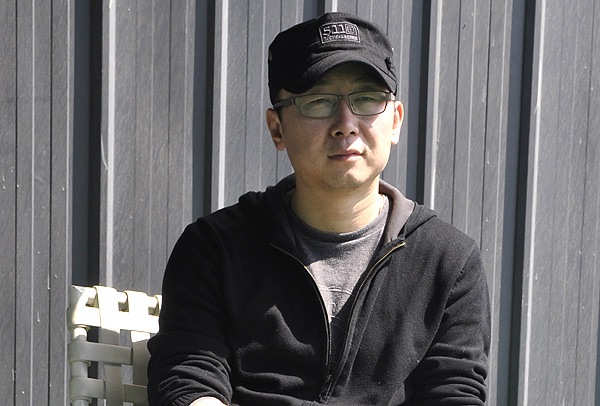Society
Film director urges soul-searching in education
By Sun Yuqing (chinadaily.com.cn)
Updated: 2011-04-06 13:30
 |
Large Medium Small |
|
 |
|
Film director Lu Chuan [Photo/chinadaily.com.cn]
|
In an exclusive interview with China Daily on death education, the director said that he has been haunted by the issue of death from an early age. By the time he was a teenager, he had done research in the library about death, out of curiosity, but he considered himself still in the process of understanding all the implications of death.
The lack of religious faith in China makes it difficult for people to find comfort and peace in their soul, according to the director. Without the enlightenment and guidance of faith, people may get lost in their busy lives and endure their anxiety about life and death, which may land them in a position to become victims of illegal spiritual movements that keep emerging in China.
Lu Chuan agreed with the idea of incorporating discussions or courses on death into the school curriculum, but he warned against crude programs such as lying in coffins to experience the end of life. He also joked about the lavish burial ceremonies frequently reported by news media as a way of collecting money under the guise of condolence and called the frenzy of buying expensive burial plot "not smart."
"Education on death has to be soul-searching and well-designed. We need to learn how to manage our emotions, handle grief, and live a life with respect and tolerance," Lu said. "People have to think for themselves about issues like death as it is hard to talk about this with others, and the government should stay away from this process."
The director became known for his City of Life and Death, a daring film exploring the glimmer of humanity in real-life Japanese soldier Kadokawa during the Nanking Massacre in 1937. Kadokawa committed suicide by firing a bullet in his head after witnessing the brutality done to the Chinese people and the loss of his beloved, a Japanese woman who worked as a comfort woman for the Japanese army.
Recalling the character Kadokawa, Lu said the soldier was a normal person with normal desires and his self-awareness exposed the deep themes of humanity even in war. China's education should do more to encourage critical thinking and self-examination by toning down the hatred and humiliation in history textbooks in order to build a society with diverse opinions and mutual tolerance.
The director also supports the abolishment of the death penalty in China, out of concerns about power abuse in the justice system.